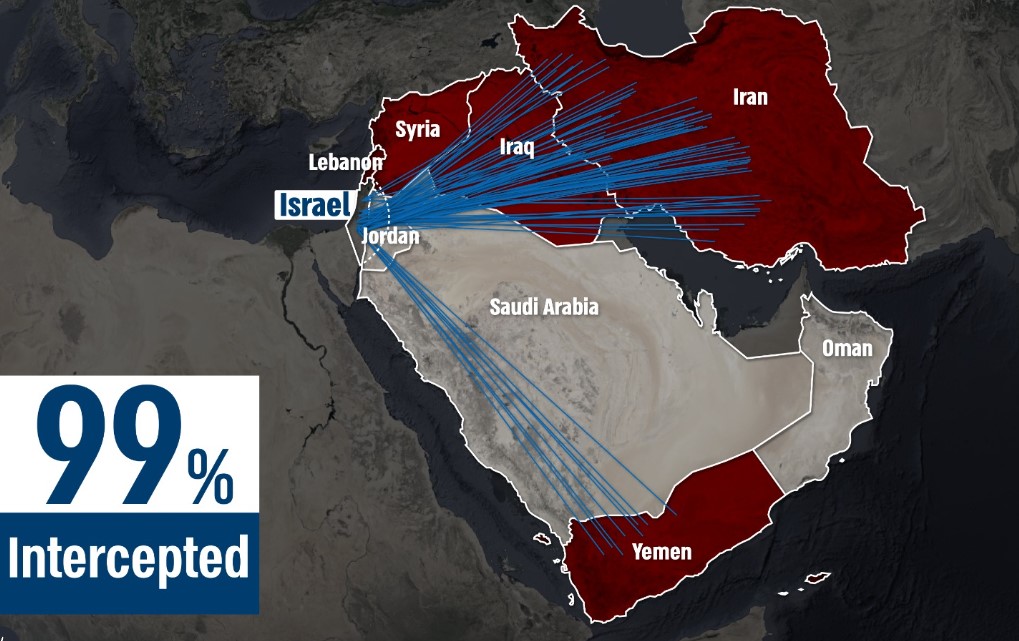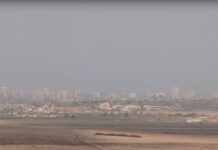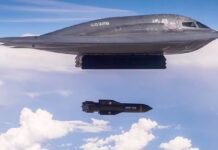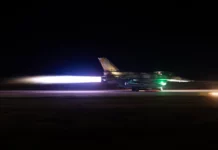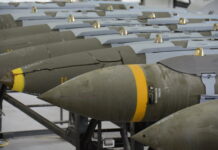With the Israel Defence Forces (IDF) having successfully blunted a significant Iranian missile and unmanned aerial vehicle (UAV) attack – Iran’s first direct attack on Israeli territory – the world is waiting to see what comes next.
The Iranian attack took place on the night of 13 April 2024 in response to an Israeli air strike on the Iranian Consulate in Damascus on 1 April that killed Brigadier General Mohammad Reza Zahedi, commander of the Quds Force of the Islamic Revolutionary Guard Corps (IRGC), along with other IRGC commanders.
Speaking on 14 April, IDF spokesperson Rear Admiral Daniel Hagari stated, “Last night, Iran initiated an attack against Israel, launching over 300 threats of various types. The Iranian threat met the aerial and technological superiority of the IDF, along with a strong fighting coalition – which together intercepted the overwhelming majority of the threats. 99% of the threats launched towards Israeli territory were intercepted – a very significant strategic achievement.
“Of approximately 170 unmanned aerial vehicles that Iran launched, zero crossed into Israeli territory,” Adm Hagari continued. “Dozens of them were intercepted by Israeli Air Force fighter jets, our Aerial Defense Array, and the aerial defense systems and aircraft of our partners.
“From the more than 30 cruise missiles Iran launched, none crossed into Israeli territory. 25 of them were intercepted by IAF fighter jets outside the country’s borders. Out of over 120 ballistic missiles, only a few crossed into Israeli territory, with the rest being intercepted. These fell at the Nevatim Air Force Base, causing only minor damage to infrastructure.”
Adm Harari further noted that, in addition to the strikes launched from Iran, “several launches were made from the territories of Iraq and Yemen. None of them crossed into Israeli territory. In recent hours, dozens of rockets were fired from Lebanese territory toward the north; there were no casualties. [Israeli] Fighter jets struck Hezbollah targets across Lebanon, including Radwan (Hezbollah special forces] targets. All this while additional aircraft continue their defense missions.”
The IDF missile defence response to the Iranian attack was supplemented by the military assets of Israel’s allies. On 14 April US Central Command stated that “On April 13 and the morning of April 14, US Central Command forces, supported by US European Command destroyers, successfully engaged and destroyed more than 80 one-way attack uncrewed aerial vehicles (OWA UAVs) and at least six ballistic missiles intended to strike Israel from Iran and Yemen. This includes a ballistic missile on its launcher vehicle and seven UAVs destroyed on the ground in Iranian-backed Houthi-controlled areas of Yemen prior to their launch.”
UK Prime Minister Rishi Sunak also confirmed that Royal Air Force Typhoon fighters deployed from RAF Akrotiri on Cyprus also shot down “a number of Iranian attack drones”.
The IDF also stated that French military assets were involved in countering the Iranian attack.
Given that the Iranian barrage was telegraphed in advance by Tehran, which would have felt compelled to respond to the lethal strike on the Iranian Consulate in Damascus, it could be seen as more of a symbolic response, rather than an attack with real prospects of causing any significant damage. Adm Harari noted in his briefing that the only Israeli casualty was a 10-year-old girl who sustained severe injuries from shrapnel.
That said, the Iranian military will have least gleaned intelligence on the scale of the IDF response, while the attack itself represents an unprecedented escalation by Tehran, which has previously conducted hostile action against Israel only through the use of proxies such as Hezbollah, Hamas and the Houthi militia.
In concluding his briefing, Adm Harari stated, “Iran committed a very serious act tonight, pushing the Middle East towards escalation. We are doing and will do everything necessary to protect the security of the civilians of the State of Israel.”
While Israeli political and IDF leaders consider a further response, even as Israel continues its offensive in Gaza, the country’s allies have urged restraint amid fears of regional hostilities escalating. US President Joe Biden is reported to have told Israeli Prime Minister Benjamin Netanyahu during a call following the Iranian attack that US forces would not support any Israeli counterattack on Iran and that Israel should instead “take the win” and avoid further escalation.
